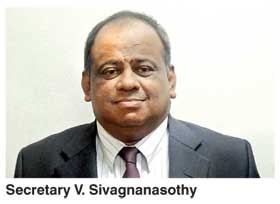Monday Feb 23, 2026
Monday Feb 23, 2026
Tuesday, 27 December 2016 00:03 - - {{hitsCtrl.values.hits}}
The Ministry of National Integration and Reconciliation is responsible for promoting peace, unity and harmony between the country’s communities which is fundamental for sustainable development. Considering the national importance of integration and reconciliation, President Maithripala Sirisena has brought this ministry under his direct purview.
The ministry has proposed to declare a National Integration Week every year from 8-14 January. The Cabinet granted approval for  National Integration and Reconciliation Week. The date on which President Sirisena assumed office falls within this period. The main aim of this initiative is to promote unity, peace, affection and brotherhood among communities of different ethnic, religious, cultural and regional diversities. This is a nation building effort that lays the foundation for a united, strong, reconciled and prosperous nation which recognises unity in diversity, said Ministry of National Integration and Reconciliation Secretary V. Sivagnanasothy.
National Integration and Reconciliation Week. The date on which President Sirisena assumed office falls within this period. The main aim of this initiative is to promote unity, peace, affection and brotherhood among communities of different ethnic, religious, cultural and regional diversities. This is a nation building effort that lays the foundation for a united, strong, reconciled and prosperous nation which recognises unity in diversity, said Ministry of National Integration and Reconciliation Secretary V. Sivagnanasothy.
During National Integration and Reconciliation Week it is proposed to conduct the following programs island-wide.
Sustainable Development Goal (SDG) 16 emphasises “peace building” as an important theme to make the world the happiest place to live. In this context, National Integration Week is an important intervention to sensitise and make a change in the mindset of the people towards building peace, harmony, unity and brotherhood among communities which is vital for sustainable development, said Sivagnanasothy.
The Consultations Task Force on Reconciliation Mechanisms appointed by the Prime Minister on 26 January this year will present its report to the President on 3 January 2017, the Secretariat for Coordinating Reconciliation Mechanisms announced.
The report will also be published on its website on the same day, the Secretary of the Task Force, Dr. Paikiasothy Saravanamuttu, told BBC Sandeshaya.
Dr. Saravanamuttu said the task force received nearly 7,500 proposals during the face-to-face consultations with different communities, civil society organisations and religious leaders via town hall meetings, focus group discussions and structured interviews in all districts of the Island.
“The basic ideas of those proposals are included in our report,” Dr. Saravanamuttu said.
He said the Government has pledged to include the proposals presented by the public in the four mechanisms proposed by the Government to address the Geneva proposal on war crime investigations
The Government has indicated that it is considering an Office of Missing Persons, a Truth, Justice, Reconciliation and Non-Recurrence Commission, a Judicial Mechanism with a Special Counsel and an Office of Reparations.
When reminded that the Government has already established the missing person’s commission, the Secretary of the Task Force said the Government was advised at the time that it was not appropriate to bring the Bill to set up the commission.
However, there is still time to make revisions to the Bill if necessary since the offices are not yet established, the Secretary said.